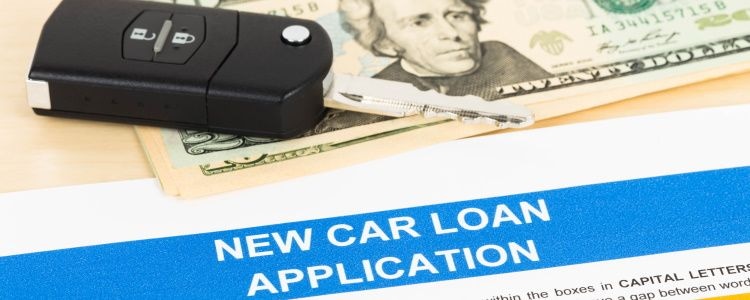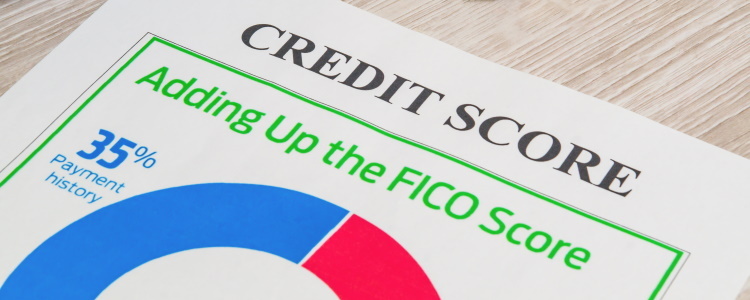When you need a car loan, you don’t have to take drastic steps to repair your credit score. There are little things you can do that can improve your credit over time, with little effort.
What Your Credit Score Is Made of
To understand what actions have an impact on your credit, you need to know what your FICO credit score is made of. The FICO credit scoring model is the most commonly used model among auto lenders, and it has five different categories:
- Payment history 35% – The most influential factor. It keeps track of the timeliness of your loan payments.
- Amounts owed 30% – Keeps track of the balances on your open accounts, such as credit cards and installment loans.
- Length of credit history 15% – How old your credit history is. Keeps track of the average age of all your accounts; the older the better.
- Credit mix 10% – Takes into account the different types of active credit on your credit reports. A well-maintained variety of credit improves your rating.
- New credit 10% – Keeps track of how many times you apply for new credit.
Knowing what your credit score keeps track of, and what’s most important, is a great first step in improving it. With that out of the way, we’ve got some tips to help you improve your credit without much effort.
Five Little Ways to Improve Your Credit
With the importance of the credit score categories in mind, let’s cover the easy, little things you can do to boost your credit score:
 Keep paying your bills on time – Staying on top of your bills means keeping yourself out of sticky credit situations that cause negative marks on your credit reports. By making all payments on time, you're building a good payment history, avoiding default on your loans, and keeping accounts out of collections. Staying current on your installment loans, such as a car loan, also means avoiding a repossession which can drastically lower your credit score.
Keep paying your bills on time – Staying on top of your bills means keeping yourself out of sticky credit situations that cause negative marks on your credit reports. By making all payments on time, you're building a good payment history, avoiding default on your loans, and keeping accounts out of collections. Staying current on your installment loans, such as a car loan, also means avoiding a repossession which can drastically lower your credit score.- Apply for new credit sparingly – When you apply for new credit and the lender requests your credit reports, it’s called a hard inquiry. Hard inquiries hurt your credit a little bit, typically only around five to 10 points for up to 12 months. Applying for a credit card, mortgage, and auto loan, all in one week could stand to lower your credit score for quite a while. Apply for new credit only when it’s necessary.
- Keep old accounts open – Do you have an old credit card that you don’t use anymore? Keep it open! Closing a long-standing account can lower the average age of your credit history, and lower your credit score. This tip involves doing nothing with your old accounts, so it might be the easiest one we’ve got!
- Lower credit card balances – If your credit card balances are over 30% of their limits, then it’s probably harming your credit score. The FICO scoring model prefers seeing revolving accounts below at least 30% of their limits since it shows that you’re not overextended with credit. A borrower with maxed-out credit cards can be viewed as risky, so lower your credit card balances as much as possible. Common advice regarding credit cards is to pay off your balances at the end of each month to reduce interest charges and keep your balances low.
- Take on a loan you can handle – One of the best ways to improve your credit score is by having loans that are reported to the credit bureaus. If you don’t have much (or anything) being reported, then you’re likely to be called a no credit borrower – and having no credit typically leads to a lower credit score. Many borrowers start their credit history with an auto loan since they provide years of potential good payment history. Getting a loan with poor credit is possible, too, if you work with the right lenders.
Having a good credit score means saving money when you need to borrow since many lenders use your credit rating to determine your interest rate and eligibility for an auto loan approval. Good credit can lead to more lending opportunities and peace of mind that you have a better chance of qualifying for credit when you really need it.
Need an Auto Loan That Comes With Credit Repair?
Repairing your credit, or starting your credit history, means taking on a loan that’s reported to the credit reporting agencies. A car loan that isn’t reported doesn’t do anything to improve your payment history or your credit score.
However, having a poor credit score often means finding a lender that can assist with lower credit ratings – but they’re not as scarce as you may think.
There are dealerships signed up with subprime lenders that are equipped to work with borrowers in different types of unique credit circumstances. Subprime is another word for bad credit, and these lenders understand that credit doesn't have to be the most important factor of auto loan eligibility.
To apply with a subprime lender for an auto loan, find a special finance dealership. You talk with the special finance manager, who sends your application and proofs along to their lending partners. If you’re eligible for vehicle financing, you choose a car that fits your needs and the lender’s stipulations.
Subprime car loans also offer the opportunity for credit repair, because the loans are reported. With a well-managed auto loan with years of on-time payments, your credit score can improve vastly!
We Want to Connect You to a Dealership
Here at Auto Credit Express, we know it can be a hassle to search for a dealership that has the lending resources you need. But thanks to our expansive dealership network, you may not have to do any legwork at all to find a dealer that can help.
Complete our auto loan request form, and we’ll do the work of finding a dealership in your local area that’s signed up with subprime lenders. Our form is completely free, there’s never an obligation, and we’ll do all the work to get you the connections you need for a car loan. Get started today!
















